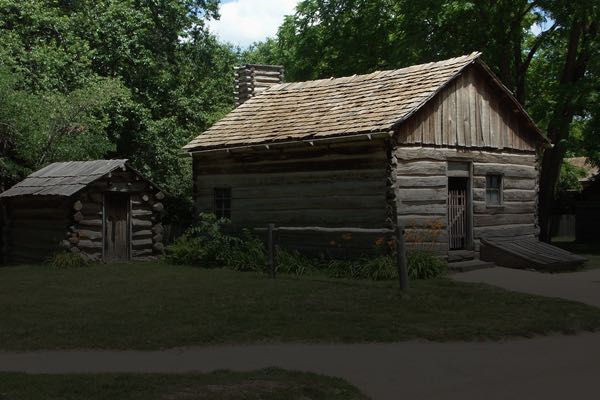
Wilder wrote about her childhood experiences in a 19th Century pioneer family. Perhaps her most famous book, Little House on the Prairie, describes Native Americans as “wild animals” and includes characters who believed “the only good Indian was a dead Indian.” Most people in America probably think removing Wilder’s name from an award for Children’s literature is silly. Share on X
Despite these references (and others like them), most people in America probably think removing Wilder’s name from an award for Children’s literature is silly. The majority of us have been raised in a Christian tradition (over 70% of us still claim a Christian identity), and we’ve read many of the Biblical narratives. As a result, we understand an important distinction that seems lost on those who decided to rename the award:
We understand the difference between descriptive and prescriptive literature.
The Old and New Testaments include both types of prose. The Biblical authors described the adulterous activity of King David (2 Samuel 11) and the polygamous lifestyle of King Solomon (1 Kings 11:3), for example, without prescribing these behaviors for their readers. The Bible describes people who engaged in a variety of sinful activities, but Christians who read these passages understand we are not to emulate this behavior.
Similarly, the New Testament authors described early believers who sold all their personal belongings, attended temple on a daily basis, and met together in homes (Acts 2:44-46), without prescribing this behavior for subsequent generations. Christians recognize these first century descriptions are simply that: descriptions of the first century. They are not mandates for future behavior.
Sometimes an author denounces a belief or behavior (prescribing a better alternative), and sometimes an author pronounces a belief or behavior (describing what someone believed or practiced without endorsing it). Share on XIf you were exposed to Christian scripture growing up, you probably understand this important distinction. Sometimes an author denounces a belief or behavior (prescribing a better alternative), and sometimes an author pronounces a belief or behavior (describing what someone believed or practiced without endorsing it). This is true for the ancient Biblical authors and it is also true for Laura Ingalls Wilder.
It’s important to leave descriptions in place, even if we find them offensive. We can learn a lot about what not to do by reading the Biblical descriptions (especially when we see what happened to David and Solomon), and in a similar way, we can learn a lot about what not to do by reading Wilder’s descriptions. Good writers “tell it like it is” (or “how it was”) and allow their readers to evaluate the behavior.
That’s why most of us think it’s silly to remove Wilder’s name from the award. We grew up reading her books (and then re-reading them to our children), yet we didn’t adopt the descriptions of her past as prescriptions for our future. We understood this important distinction by relying on both on our rational tradition as thinking humans, and our religious tradition as American Christians.
This article first appeared on TownHall.com

J. Warner Wallace is a Dateline featured Cold-Case Detective, Senior Fellow at the Colson Center for Christian Worldview, Adj. Professor of Christian Apologetics at Talbot School of Theology, Biola University, author of Cold-Case Christianity, God’s Crime Scene, and Forensic Faith, and creator of the Case Makers Academy for kids.
Subscribe to J. Warner’s Daily Email
J. Warner Wallace is a Dateline featured cold-case homicide detective, popular national speaker and best-selling author. He continues to consult on cold-case investigations while serving as a Senior Fellow at the Colson Center for Christian Worldview. He is also an Adj. Professor of Christian Apologetics at Talbot School of Theology, Biola University, and a faculty member at Summit Ministries. He holds a BA in Design (from CSULB), an MA in Architecture (from UCLA), and an MA in Theological Studies (from Gateway Seminary).






































